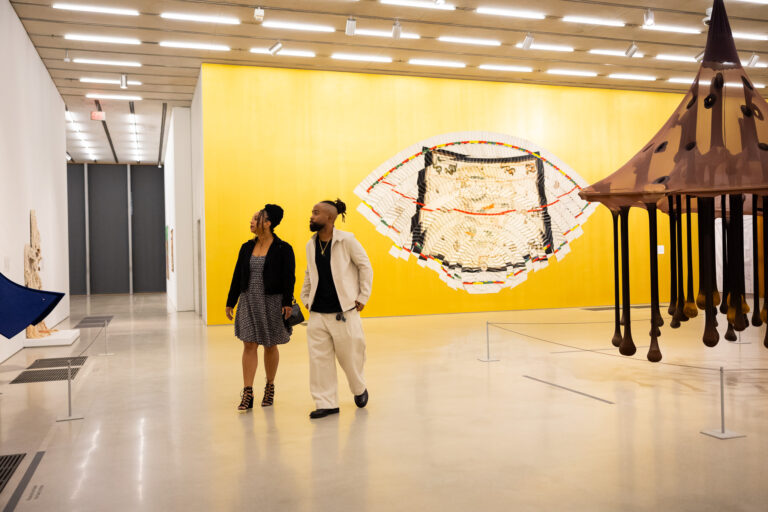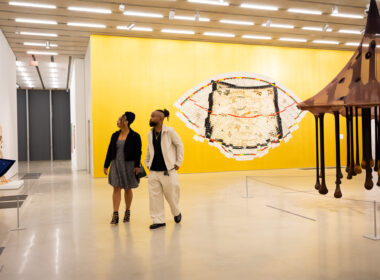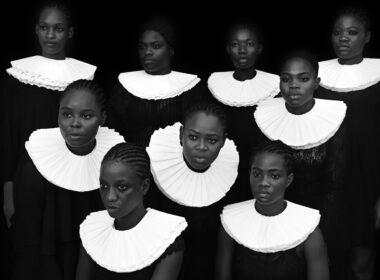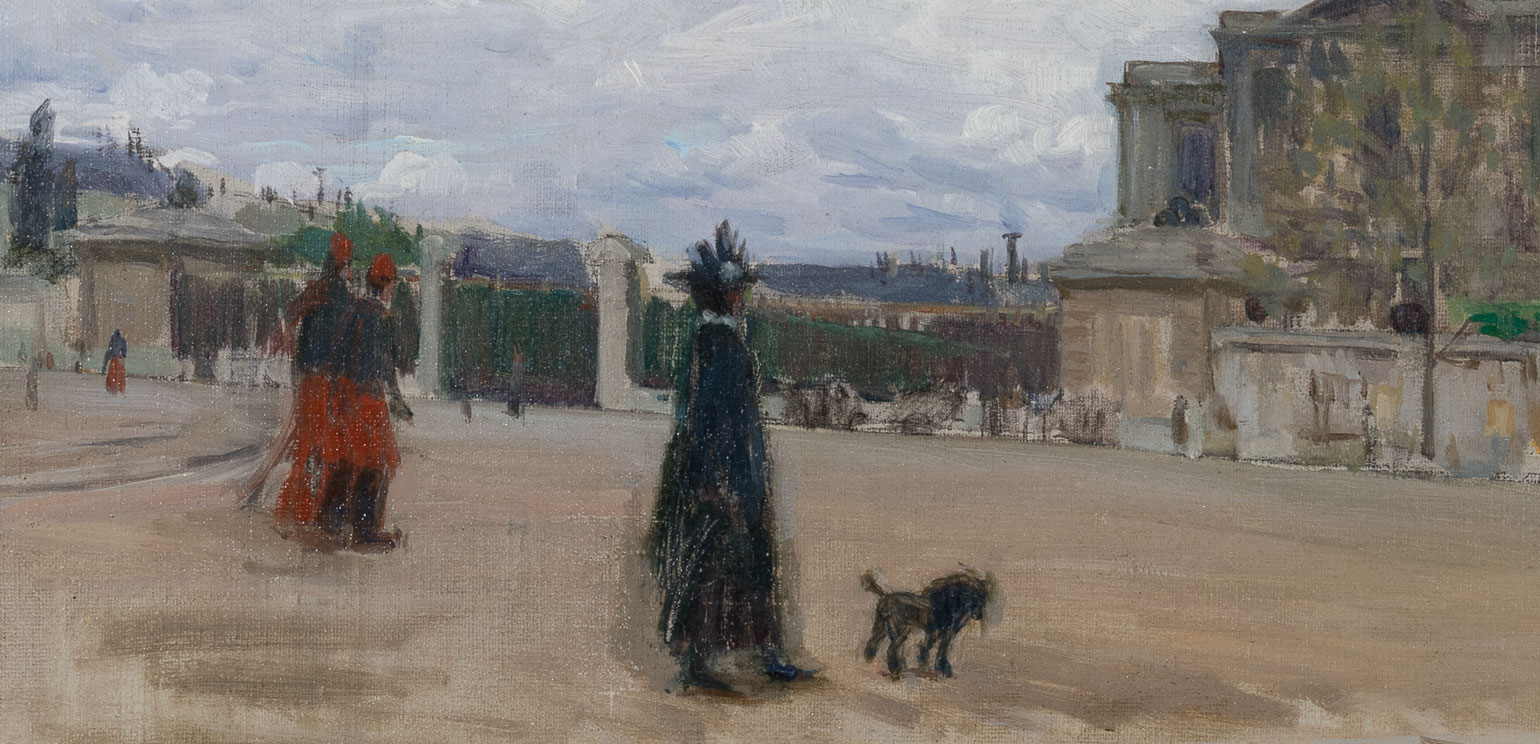Get ready for a literary extravaganza as the Miami Book Fair, a literary spectacle that has captivated bibliophiles since 1984, is set to unfold its magic from November 12 to 19, 2023. This year’s edition promises an electrifying start with an ensemble of some of the most dynamic Black authors gracing the bookshelves and stealing the spotlight.
Join the ranks of literary enthusiasts as international sensation Jada Pinkett-Smith, acclaimed architect and designer Germane Barnes, and the maestro of horror and sci-fi, Tanavarie Due, converge at the Miami Book Fair. It’s a rare chance to be in the presence of these literary luminaries, and you won’t want to miss it. Be sure to peruse the detailed schedules to lock in the time and place for each author’s captivating appearance.
What began as a collaboration in 1984 between Miami Dade College, visionary Mitch Kaplan, and local bookstores, has burgeoned into an illustrious cultural phenomenon. The Miami Book Fair has evolved into one of the nation’s premier literary events, a testament to the enduring love for literature and the ardent commitment of its founders. Don’t just read about it – immerse yourself in the pages of this literary odyssey at the Miami Book Fair.
Brendan Slocumb, Symphony of Secrets: A Novel A gripping page-turner from the celebrated author of The Violin Conspiracy: Music professor Bern Hendricks discovers a shocking secret about the most famous American composer of all time—his music may have been stolen from a Black Jazz Age prodigy named Josephine Reed. “A maestro of musical mystery…Slocumb’s writing is invigorating, and the detail in his character work makes the main characters in both time periods easy to root for…. Thrilling.” —The New York Times
Germane Barnes, Reconstructions: Architecture and Blackness in America is an urgent call for architects to accept the challenge of reconceiving and reconstructing our built environment rather than continue giving shape to buildings, infrastructure and urban plans that have, for generations, embodied and sustained anti-Black racism in the United States. The architects, designers, artists and writers who were invited to contribute to this book―and to the exhibition at the Museum of Modern Art for which it serves as a “field guide”―reimagine the legacies of race-based dispossession in 10 American cities (Atlanta; Brooklyn, New York; Kinloch, Missouri; Los Angeles; Miami; Nashville; New Orleans; Oakland; Pittsburgh; and Syracuse) and celebrate the ways individuals and communities across the country have mobilized Black cultural spaces, forms and practices as sites of imagination, liberation, resistance, care and refusal. A broad range of essays by the curators and prominent scholars from diverse fields, as well as a portfolio of new photographs by the artist David Hartt, complement this volume’s richly illustrated presentations of the architectural projects at the heart of MoMA’s groundbreaking exhibition.
Jada Pinkett Smith, Worthy A gripping, painfully honest, and ultimately inspirational memoir from global superstar and creator of the Red Table Talk series Jada Pinkett Smith. Along the way, she explores her path to accepting her power as a woman, and her discovery that a strong sense of self is every woman’s right and saving grace. From an unconventional upbringing in Baltimore, to an unconventional marriage to one of the most famous men in the world, adhering to the status quo has never been a familiar road for Jada Pinkett Smith. In Worthy, Smith strips herself of all the labels and stories crafted by others, and reclaims her narrative with radical self-love. Worthy teaches us who Jada is, and how to embrace our most authentic loveable souls.
James McBride The Heaven & Earth Grocery Store: A Novel Named a Must Read The New York Times • The Washington Post • The Boston Globe • Time From James McBride, author of the bestselling Oprah’s Book Club pick Deacon King Kong and the National Book Award–winning The Good Lord Bird, a novel about small-town secrets and the people who keep them. In 1972, when workers in Pottstown, Pennsylvania, were digging the foundations for a new development, the last thing they expected to find was a skeleton at the bottom of a well. Who the skeleton was and how it got there were two of the long-held secrets kept by the residents of Chicken Hill, the dilapidated neighborhood where immigrant Jews and African Americans lived side by side and shared ambitions and sorrows. Chicken Hill was where Moshe and Chona Ludlow lived when Moshe integrated his theater and where Chona ran the Heaven & Earth Grocery Store. When the state came looking for a deaf boy to institutionalize him, it was Chona and Nate Timblin, the Black janitor at Moshe’s theater and the unofficial leader of the Black community on Chicken Hill, who worked together to keep the boy safe. As these characters’ stories overlap and deepen, it becomes clear how much the people who live on the margins of white, Christian America struggle and what they must do to survive. When the truth is finally revealed about what happened on Chicken Hill and the part the town’s white establishment played in it, McBride shows us that even in dark times, it is love and community— heaven and earth—that sustain us.
Jonathan Eig, King: A Life Hailed by the New York Times as “the new definitive biography,” King mixes revelatory new research with accessible storytelling to offer an MLK for our times. Vividly written and exhaustively researched, Jonathan Eig’s King: A Life is the first major biography in decades of the civil rights icon Martin Luther King Jr.—and the first to include recently declassified FBI files. In this revelatory new portrait of the preacher and activist who shook the world, the bestselling biographer gives us an intimate view of the courageous and often emotionally troubled human being who demanded peaceful protest for his movement but was rarely at peace with himself. He casts fresh light on the King family’s origins as well as MLK’s complex relationships with his wife, father, and fellow activists. King reveals a minister wrestling with his own human frailties and dark moods, a citizen hunted by his own government, and a man determined to fight for justice even if it proved to be a fight to the death. As he follows MLK from the classroom to the pulpit to the streets of Birmingham, Selma, and Memphis, Eig dramatically re-creates the journey of a man who recast American race relations and became our only modern-day founding father—as well as the nation’s most mourned martyr. In this landmark biography, Eig gives us an MLK for our times: a deep thinker, a brilliant strategist, and a committed radical who led one of history’s greatest movements, and whose demands for racial and economic justice remain as urgent today as they were in his lifetime.
Jennifer Maritza McCauley, When Trying to Return Home: Stories A New York Times Book ReviewEditors’ Choice. A dazzling debut collection spanning a century of Black American and Afro-Latino life in Puerto Rico, Pittsburgh, Louisiana, Miami, and beyond—and an evocative meditation on belonging, the meaning of home, and how we secure freedom on our own terms. Profoundly moving and powerful, the stories in When Trying to Return Home dig deeply into the question of belonging. A young woman is torn between overwhelming love for her mother and the need to break free from her damaging influence during a desperate and disastrous attempt to rescue her brother from foster care. A man, his wife, and his mistress each confront the borders separating love and hate, obligation and longing, on the eve of a flight to San Juan. A college student grapples with the space between chivalry and machismo in a tense encounter involving a nun. And in 1930s Louisiana, a woman attempting to find a place to call her own chances upon an old friend at a bar and must reckon with her troubled past. Forming a web of desires and consequences that span generations, McCauley’s Black American and Afro–Puerto Rican characters remind us that these voices have always been here, occupying the very center of American life—even if we haven’t always been willing to listen.
Award-winning actor, director, producer, and activist Kerry Washington, Thicker Than Water: A Memoir shares the deeply moving journey of her life so far, and the bravely intimate story of discovering her truth. While on a drive in Los Angeles, on a seemingly average afternoon, Kerry Washington received a text message that would send her on a life-changing journey of self-discovery. In an instant, her very identity was torn apart, with everything she thought she knew about herself thrown into question. In Thicker than Water, Washington gives readers an intimate view into both her public and private worlds—as an artist, an advocate, an entrepreneur, a mother, a daughter, a wife, a Black woman. Chronicling her upbringing and life’s journey thus far, she reveals how she faced a series of challenges and setbacks, effectively hid childhood traumas, met extraordinary mentors, managed to grow her career, and crossed the threshold into stardom and political advocacy, ultimately discovering her truest self and, with it, a deeper sense of belonging. Throughout this profoundly moving and beautifully written memoir, Washington attempts to answer the questions so many have struggled with: Who am I? What is my truest and most authentic self? How do I find a deeper sense of connection and belonging? With grace and honesty, she inspires readers to search for—and find—themselves.
Laura Meckler, Dream Town: Shaker Heights and the Quest for Racial Equality Can a group of well-intentioned people fulfill the promise of racial integration in America? In this searing and intimate examination of the ideals and realities of racial integration, award-winning Washington Post journalist Laura Meckler tells the story of a decades-long pursuit in Shaker Heights, Ohio, and uncovers the roadblocks that have threatened progress time and again―in housing, in education, and in the promise of shared community. In the late 1950s, Shaker Heights began groundbreaking work that would make it a national model for housing integration. And beginning in the seventies, it was known as a crown jewel in the national move to racially integrate schools. The school district built a reputation for academic excellence and diversity, serving as a model for how white and Black Americans can thrive together. Meckler―herself a product of Shaker Heights―takes a deeper look into the place that shaped her, investigating its complicated history and its ongoing challenges in order to untangle myth from truth. She confronts an enduring, and troubling, question―if Shaker Heights has worked so hard at racial equity, why does a racial academic achievement gap persist? In telling the stories of the Shakerites who have built and lived in this community, Meckler asks: What will it take to fulfill the promise of racial integration in America? What compromises are people of all races willing to make? What does success look like, and has Shaker achieved it? The result is a complex and masterfully reported portrait of a place that, while never perfect, has achieved more than most and a road map for communities that seek to do the same.
Leon Ford, An Unspeakable Hope: Brutality, Forgiveness, and Building a Better Future for My Son A “powerful and insightful” (Cyntoia Brown-Long, author of Free Cyntoia) memoir in the vein ofJust Mercy and The Sum of Us that upends our understanding about the future of policing in the United States and explores how we can begin healing from systemic injustice. In 2012, 19-year-old Leon Ford was shot five times by a Pittsburgh police officer during a racially charged traffic stop stemming from a case of mistaken identity. When he woke up in the hospital, he was faced with two life-changing realities: he was a new father, and he was paralyzed from the waist down. Leon found the only way to move forward was to let go of his bitterness and learn to practice forgiveness. Now, in this memoir Leon illustrates how this harrowing experience has inspired a deep reckoning with the issues his community is facing, not only with police brutality, but also an epidemic of street violence, toxic masculinity and its impact on Black fatherhood, and the lack of disability rights and mental health access in disenfranchised communities. In the wake of countless similar shootings across the country, Leon details how he turned towards social activism, dedicating himself to bridging the gap between the police and the communities they are supposed to serve.
Phillip Hubbart, From Death Row to Freedom: The Struggle for Racial Justice in the Pitts-Lee Case An insider’s account of a wrongful conviction and the fight to overturn it during the civil rights era. This book is an insider’s account of the case of Freddie Pitts and Wilbert Lee, two Black men who were wrongfully charged and convicted of the murder of two white gas station attendants in Port St. Joe, Florida, in 1963, and sentenced to death. Phillip Hubbart, a defense lawyer for Pitts and Lee for more than 10 years, examines the crime, the trial, and the appeals with both a keen legal perspective and an awareness of the endemic racism that pervaded the case and obstructed justice. Hubbart discusses how the case against Pitts and Lee was based entirely on confessions obtained from the defendants and an alleged “eyewitness”through prolonged, violent interrogations and how local authorities repeatedly rejected later evidence pointing to the real killer, a white man well known to thePort St. Joe police. The book follows the case’s tortuous route through the Florida courts to the defendants’ eventual exoneration in 1975 by the Florida governor and cabinet. Publication of this work made possible by a Sustaining the Humanities through the American Rescue Plan grant from the National Endowment for the Humanities.
Rachel Swarns, The 272: The Families That Were Enslaved and Sold to Build the American Catholic Church “An absolutely essential addition to the history of the Catholic Church, whose involvement in New World slavery sustained the Church and, thereby, helped to entrench enslavement in American society.”—Annette Gordon-Reed, Pulitzer Prize–winning author of The Hemingses of Monticello and On Juneteenth. In 1838, a group of America’s most prominent Catholic priests sold 272 enslaved people to save their largest mission project, what is now Georgetown University. In this groundbreaking account, journalist, author, and Professor Swarns follows one family through nearly two centuries of indentured servitude and enslavement to uncover the harrowing origin story of the Catholic Church in the United States. Through the saga of the Mahoney family, Swarns illustrates how the Church relied on slave labor and slave sales to sustain its operations and to help finance its expansion. Swarns’s journalism has already started a national conversation about universities with ties to slavery. The 272 tells an even bigger story, not only demonstrating how slavery fueled the growth of the American Catholic Church but also shining a light on the enslaved people whose forced labor helped to build the largest religious denomination in the nation.
American Book Award–winning author
Tananarive Due, The Wishing Pool and Other Stories Due’s second collection of stories includes offerings of horror, science fiction, and suspense―from the mysterious, magical town of Gracetown to the aftermath of a pandemic to the reaches of the far future, the stories all share a sense of dread and fear balanced with heart and hope. In some of these stories, the monster is racism itself; others address the monster within, each set against the supernatural or surreal. All are written with Due’s trademark attention to detail and deeply drawn characters.
From the Pulitzer Prize–winning poet Tracy K. Smith, To Free the Captives: A Plea for the American Soul – a stunning meditation on memory, family, and history that explores how we in America might—together—come to a new view of our shared past. “A vulnerable, honest look at a life lived in a country still struggling with its evils…Hopeful…Beautiful and haunting.” —Eddie S. Glaude Jr., author of Begin Again. In 2020, heartsick from constant assaults on Black life, Tracy K. Smith found herself soul-searching, and digging into the historical archive for help navigating the “din of human division and strife.” With lyricism and urgency, Smith draws on several avenues of thinking—personal, documentary, and spiritual—to understand who we are as a nation and what we might hope to mean to one another.To Free the Captives begins this journey by assembling a new terminology of American life. Parsing the difference between the Free and the Freed, and the distance between Time Ago and Soon, Smith etches a portrait of where we find ourselves four hundred years into the American experiment and offers a compelling argument for the vocabulary of the soul as a tool for fulfilling our duties to each other and to the future.
Walter Mosley, Touched Intergalactic visions, deadly threats, and explosive standoffs between mostly good and completely evil converge in a dystopian fantasy that could only be conceived by the inimitable Walter Mosley, one of the country’s most beloved and acclaimed writers. Martin Just wakes up one morning after what feels like, and might actually be, a centuries-long sleep with two new innate pieces of knowledge: Humanity is a virus destined to destroy all existence. And he is the Cure. Martin begins slipping into an alternate consciousness, with new physical strengths, to violently defend his family—the only Black family in their neighborhood in the Hollywood Hills of Los Angeles— against pure evil. Expansive and innovative, sexy and satirical, Touched brilliantly imagines the ways in which human life and technological innovation threaten existence itself.







